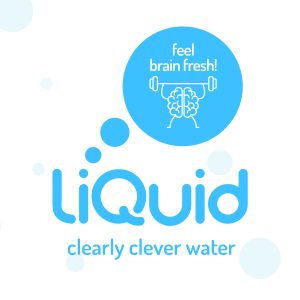- Acetyl-L-Carnitine (ALC) is an amino acid which helps to body to produce energy. Scientific studies have demonstrated numerous benefits of this amino acid and, therefore, ALC has received considerable scientific interest as treatment for neurodegenerative diseases – including improvement of memory and Alzheimer’s. ALC impacts brain energy and phospholipid metabolism and interacts with cell membranes, proteins, and enzymes.
- According to scientific studies, Acetyl-L-Carnitine can modulate brain energy and phospholipid metabolism, cellular macromolecules (including neurotrophic factors and neurohormones), synaptic morphology and synaptic transmission of multiple neurotransmitters (Pettegrew et al., 2000).
- ALC has been extensively studied in relation to Alzheimer’s disease and other medical conditions where it has been shown to be both effective and safe (Pettegrew et al., 2002; Zanardi and Smeraldi, 2006; Rossini et al., 2007; Chiechio et al., 2007; Evans et al., 2008; Janiri et al., 2009).
- ALC consumption can enhance cognitive function or reduce the rate of cognitive deterioration in patients with mild cognitive impairment, Alzheimer’s disease and Parkinson’s disease (Montgomery et al 2003; Puca et al., 1990; Cucinotta et al., 1988).
- A double-blind, placebo-controlled, parallel-group, randomized clinical trial studied the efficacy of 12-month oral treatment with acetyl-L-carnitine in 130 Alzheimer’s subjects. In this study, the ALC group demonstrated statistically significantly lower rate of cognitive deterioration compared to the placebo group. Regarding side effects, this study found that there was no significant difference between the treated and placebo groups either in incidence or severity (Spagnoli et al 1991).
- A three-month study, acetyl-L-carnitine significantly improved memory test and verbal fluency test scores in elderly individuals when compared to the placebo group (n=30) (Passeri et al., 1990).
- In 2018, results of a 28-week, multi-centre, randomized, double-blind, placebo-controlled, parallel-group study was published involving dementia patients with cerebrovascular disease. This study suggested the benefits associated with the use of ALC in dementia patients with vascular cognitive impairment (Yang et al., 2018).
- Studies have also reported that administering ALC may reduce both physical and mental fatigue in elderly individuals, improving both the cognitive status and physical functions (Malaguarnera et al 2008, 2011).
- A single blind, multicentre trial of mild mental impairment in elderly subjects showed a significant improvement of several performances during and after ALC treatment. This included an improvement in the Mini–Mental State Examination test score – a test which includes simple questions and problems in a number of areas to measure cognitive impairment (Salvioli and Neri, 1994).
- Intake of ALC also seems to improve memory in 30 to 60-year-old people whose use of alcohol has produced long-term thinking problems. ALC promoted recovery of some cognitive deficits in one month-abstinent alcoholics over a 90-Day period (Tempesta et al., 1990).
References:
- Chiechio, S., Copani, A., Gereau, R.W. and Nicoletti, F., 2007. Acetyl-L-carnitine in neuropathic pain. CNS drugs, 21(1), pp.31-38.
- Cucinotta, D., Passeri, M., Ventura, S., Lannuccelli, M., Senin, U., Bonati, P.A. and Parnetti, L., 1988. Multicenter clinical placebo‐controlled study with acetyl‐l‐carnitine (LAC) in the treatment of mildly demented elderly patients. Drug Development Research, 14(3‐4), pp.213-216.
- Evans, J.D., Jacobs, T.F. and Evans, E.W., 2008. Role of acetyl-L-carnitine in the treatment of diabetic peripheral neuropathy. Annals of Pharmacotherapy, 42(11), pp.1686-1691.
- Janiri, L., Martinotti, G., Tonioni, F., Ghelardini, C., Nicolai, R., Galeotti, N., Mosconi, L., Calvani, M., Bartolini, A. and Iannoni, E., 2009. Acetyl-L-carnitine in the management of pain during methadone withdrawal syndrome. Clinical neuropharmacology, 32(1), pp.35-40.
- Malaguarnera, M., Gargante, M. P., Cristaldi, E., Colonna, V., Messano, M., Koverech, A., Neri, S., Vacante, M., Cammalleri, L., and Motta, M. Acetyl L-carnitine (ALC) treatment in elderly patients with fatigue. Arch.Gerontol.Geriatr. 2008;46(2):181-190.
- Malaguarnera, M., Vacante, M., Giordano, M., Pennisi, G., Bella, R., Rampello, L., Malaguarnera, M., Li, Volti G., and Galvano, F. Oral acetyl-L-carnitine therapy reduces fatigue in overt hepatic encephalopathy: a randomized, double-blind, placebo-controlled study. Am.J Clin Nutr. 2011;93(4):799-808.
- McDaniel, M.A., Maier, S.F. and Einstein, G.O., 2003. “Brain-specific” nutrients: a memory cure?. Nutrition, 19(11), pp.957-975.
- Montgomery SA, Thal LJ, Amrein R. Meta-analysis of double blind randomized controlled clinical trials of acetyl-L-carnitine versus placebo in the treatment of mild cognitive impairment and mild Alzheimer’s disease. Int Clin Psychopharmacol 2003;18:61-71..
- Passeri M, Cucinotta D, Bonati PA, et al. Acetyl-L-carnitine in the treatment of mildly demented elderly patients. Int J Clin Pharmacol Res 1990;10:75-9.
- Pettegrew, J.W., Levine, J., Gershon, S., Stanley, J.A., Servan‐Schreiber, D., Panchalingam, K. and McClure, R.J., 2002. 31P‐MRS study of acetyl‐L‐carnitine treatment in geriatric depression: preliminary results. Bipolar disorders, 4(1), pp.61-66.
- Pettegrew, J.W., Levine, J. and McClure, R.J., 2000. Acetyl-L-carnitine physical-chemical, metabolic, and therapeutic properties: relevance for its mode of action in Alzheimer’s disease and geriatric depression. Molecular psychiatry, 5(6), p.616.
- Puca, F.M., Genco, S., Specchio, L.M., Brancasi, B., D’ursi, R., Prudenzano, A., Miccoli, A., Scarcia, R., Martino, R. and Savarese, M., 1990. Clinical pharmacodynamics of acetyl-L-carnitine in patients with Parkinson’s disease. International journal of clinical pharmacology research, 10(1-2), pp.139-143.
- Rossini, M., Di Munno, O., Valentini, G., Bianchi, G., Biasi, G., Cacace, E., Malesci, D., La Montagna, G., Viapiana, O. and Adami, S., 2007. Double-blind, multicenter trial comparing acetyl l-carnitine with placebo in the treatment of fibromyalgia patients. Clinical and experimental rheumatology, 25(2), p.182.
- Salvioli G, Neri M. L-acetylcarnitine treatment of mental decline in the elderly. Drugs Exp Clin Res 1994;20:169-76.
- Spagnoli A, Lucca U, Menasce G, et al. Long-term acetyl-L-carnitine treatment in Alzheimer’s Disease. Neurology 1991;41:1726-32.
- Tempesta E, Troncon R, Janiri L, et al. Role of acetyl-L-carnitine in the treatment of cognitive deficit in chronic alcoholism. Int J Clin Pharmacol Res 1990;10:101-7.
- Yang, Y., Choi, H., Lee, C.N., Kim, Y.B. and Kwak, Y.T., 2018. A Multicenter, Randomized, Double-blind, Placebo-controlled Clinical Trial for Efficacy of Acetyl-L-carnitine in Patients with Dementia Associated with Cerebrovascular Disease. Dementia and Neurocognitive Disorders, 17(1), pp.1-10.
- Zanardi, R. and Smeraldi, E., 2006. A double-blind, randomised, controlled clinical trial of acetyl-L-carnitine vs. amisulpride in the treatment of dysthymia. European Neuropsychopharmacology, 16(4), pp.281-287.
